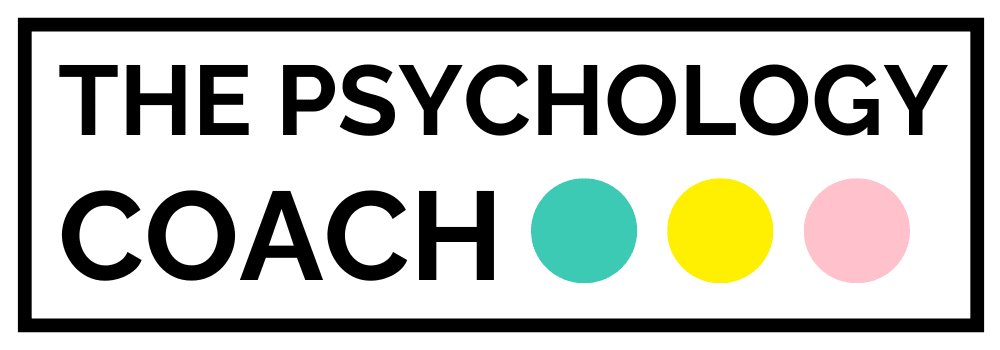Coaching Psychology (or Psychological Coaching) focuses on the creative and productive use of people’s strengths and talents. It offers you or your team a blend of psychological principles and coaching techniques to achieve a specific goal while maximising well-being and performance.
Why is Coaching Psychology different?

While other forms of coaching do not address past mental and emotional health concerns, Coaching Psychology bridges the “gap” by providing a safe space to untangle a person’s past, present and future.
Although it does not and cannot treat clinical psychological issues, Coaching Psychology applies psychological science to improve people’s life experiences, work performance and well-being.
In contrast to traditional therapy, Psychological Coaching has a straightforward, supportive and solution-based approach. At the same time, the goal is to help you take action sustainably and thoughtfully without ignoring relevant obstacles that tend to reside in your subconscious mind.
Coaching Psychology makes you the captain of your ship so you can confidently venture out to higher seas. In this sense, it has a different tone from traditional psychological services. The coaching process is cooperative and creative, with you behind the wheel, at all times.
What are the benefits of working with a Psychology Coach?

In a non-clinical setting, a Psychology Coach can offer you the best of two worlds: Psychology and Coaching. A coach trained in both fields has the advantage of a more sensitive education and understanding of human behaviour.
On top of benefiting from this unique blend, Coaching Psychology can offer you more. Here are some other unique benefits of working with a Psychology Coach:
Translating Self-awareness into Practical Wisdom

A Psychology Coach has the mission to help you gain a deeper understanding of yourself, but also the challenge to help you transform that knowledge into practical wisdom. This is done by planning and executing around your strengths and behavioural patterns. The role of a Psychology Coach is to make sure you can find compatible and sustainable ways of using the knowledge you obtain about yourself.
Finding Effective Solutions to Problems

Since a Psychology Coach helps you work with your unique set of talents and patterns, you can discover valuable tools and more effective problem-solving techniques. The coaching work is also cooperative and co-creative, meaning you have access to someone capable of helping you analyse different situations, explore alternatives and develop creative solutions.
Changing Outdated and Unhealthy Behaviours

A Psychology Coach has the duty of letting you know about your blindspots and unhealthy behaviours. At the same time, a Psychology Coach has also the responsibility of helping you modify those same behaviours in a way that protects your well-being and enhances your performance.
Success Stories
Here are some success stories shared with my client's permission.
- S. felt stuck and unfulfilled in her job and unfulfilled. Throughout our coaching sessions, she gained clarity on her values and passions. With goal-setting and skill development, she successfully transitioned to a new job, more aligned with her interests. She feels happier now and often reports on her newly gained sense of purpose.
- A., an aspiring entrepreneur, was struggling with self-doubt and imposter syndrome. With support, he worked on building confidence, reframing negative thoughts, and setting realistic goals based on his strengths and talents. He is now ready to launch his business.
- L. was dealing with chronic stress and the first signs of health-related issues. We worked through a holistic plan that included stress management, nutrition, and lifestyle changes. L. feels much better now and has a new outlook on making physical and mental well-being a priority in life.
- J. is a university student who was facing some academic challenges. Together, we identified and addressed issues such as procrastination and self-doubt. He learned the most effective study habits based on his preferences and personality. He has improved his grades and feels much more confident in his future now.
- M. was struggling with emotional abuse in relationships. We focused on building healthy boundaries, good communication skills and emotional regulation. She has now a deeper understanding of her patterns and how she can develop deeper connections with others.



Comments ()